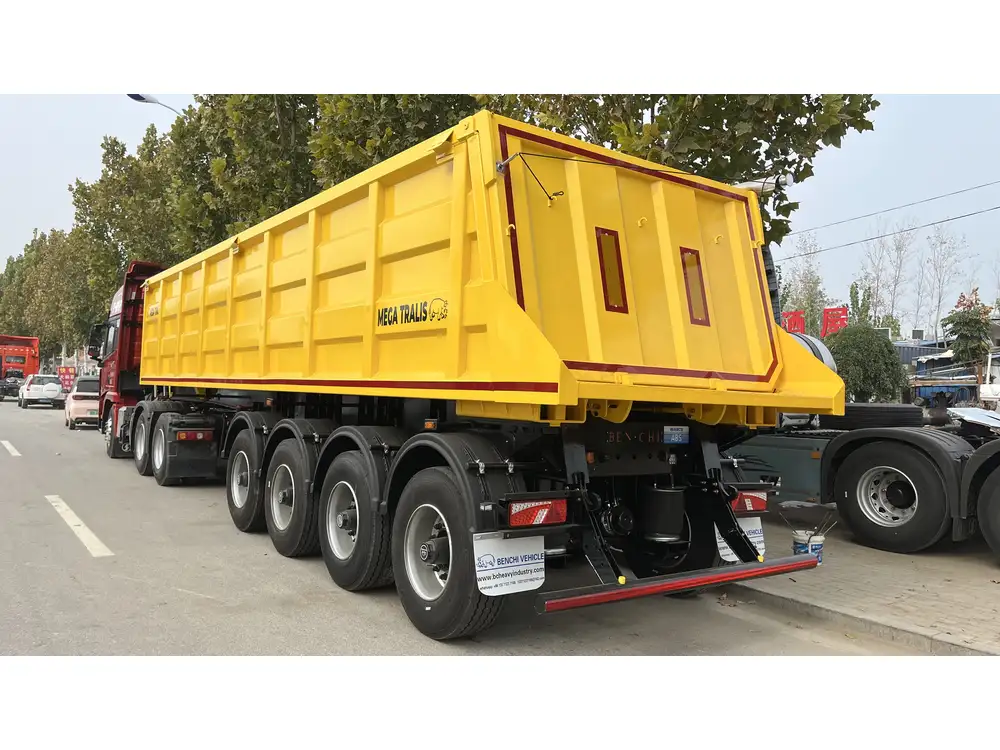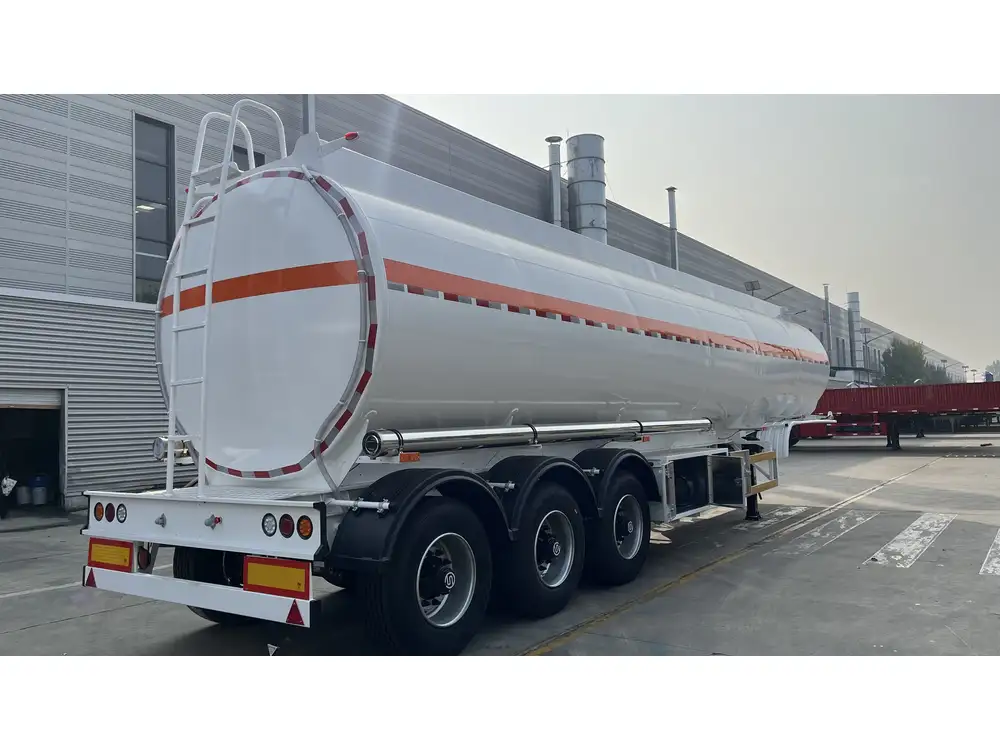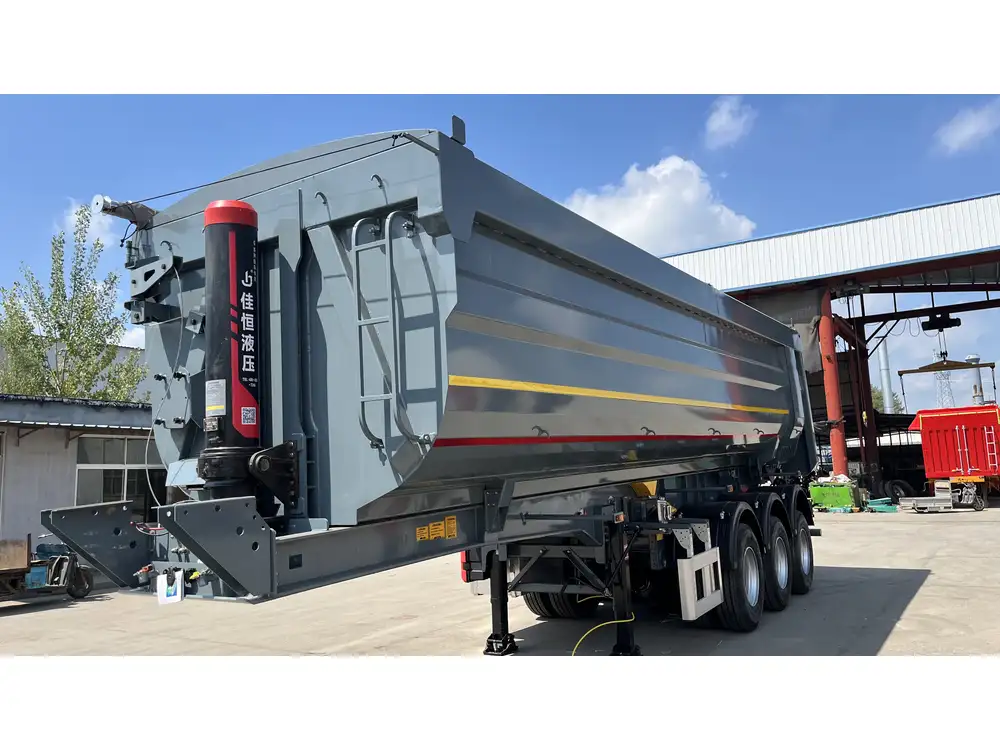When it comes to moving or transporting heavy loads, understanding the equipment at your disposal is paramount. One common question that arises is whether U-Haul trailers come equipped with brakes. This question is critical for anyone considering using a U-Haul trailer, whether for a short-distance move or a cross-country haul. This article aims to provide comprehensive insights into U-Haul trailers, their braking systems, safety considerations, and additional factors to assess when renting a trailer.
Types of U-Haul Trailers and Their Braking Systems
U-Haul offers a variety of trailers, each designed for different needs. The primary types include:
| Trailer Type | Description | Braking System |
|---|---|---|
| Cargo Trailers | Ideal for transporting furniture, boxes, and household items. | No brakes (lighter models) |
| Utility Trailers | Suitable for landscaping, construction materials, and more. | No brakes (smaller models) |
| Car Trailers | Designed explicitly for towing vehicles. | Electric brakes (larger models) |
| Enclosed Trailers | Provides protection from the weather and theft. | Electric brakes (larger models) |
| Motorcycle Trailers | Specifically made for transporting motorcycles. | No brakes (smaller models) |
Cargo Trailers
Most U-Haul cargo trailers, especially the smaller models, do not come equipped with brakes. This is primarily because they tend to weigh less than 3,000 pounds, which generally does not meet the threshold that necessitates an independent braking system. However, if you are towing a significantly heavier load, it’s vital to calculate the total weight, ensuring you remain within safe towing limits.

Utility Trailers
Utility trailers are another category where braking systems can vary. Smaller utility trailers often lack brakes as well, but larger units might have a braking mechanism incorporated into their design. As with cargo trailers, assessing the overall weight is critical for safe operation.
Car and Enclosed Trailers
For heavier trailers like car haulers and enclosed trailers, brakes are standard features. With weights often exceeding the limits for safe towing without brakes, these trailers typically include either electric brakes or surge brakes. Electric brakes require the installation of a brake controller in your towing vehicle, whereas surge brakes activate when the trailer pushes forward as the towing vehicle brakes.
Safety and Legal Considerations

Legal Requirements for Braking Systems
Understanding local laws concerning trailer braking systems is essential. Many jurisdictions mandate that trailers exceeding a certain weight must have brakes. Not only do these regulations ensure safety, but they also help to avoid potential legal complications.
For instance, the Federal Motor Carrier Safety Administration stipulates that trailers weighing over 3,000 pounds must have a braking system that is capable of stopping the trailer effectively. This legal requirement underscores the necessity of trailer brakes for heavier loads.
Safety Features of U-Haul Trailers
U-Haul trailers are designed with various safety features, which include:
- Breakaway Brake System: This system automatically engages the brakes if the trailer becomes disconnected from the towing vehicle.
- Reflective Tape: Enhances visibility while on the road, particularly at night.
- Safety Chains: An additional line of defense that provides a secure connection between the trailer and the towing vehicle.
These features are critical for minimizing risk while on the road, ensuring both the safety of your cargo and of other drivers.
Assessing Your Towing Vehicle

Vehicle Compatibility
Before renting a U-Haul trailer, it’s crucial to consider your vehicle’s towing capacity. Each vehicle has a specific limit for how much weight it can safely tow, which is often outlined in the owner’s manual. Ignoring these guidelines can lead to dangerous situations, compromising the stability and safety of both the trailer and towing vehicle.
Hitches and Brake Controllers
Selecting the correct hitch is essential, as it relates directly to your vehicle’s ability to handle a trailer’s weight.
| Hitch Class | Weight Capacity | Common Uses |
|---|---|---|
| Class I | Up to 2,000 lbs | Lightweight trailers and small campers |
| Class II | 2,000 to 3,500 lbs | Medium-sized utility trailers |
| Class III | 3,500 to 6,000 lbs | Heavier utility, enclosed, or car trailers |
| Class IV | 6,000 to 10,000 lbs | Full-sized trailers for serious hauling |
For electric brake-equipped trailers, a brake controller must be installed in your vehicle. This controller is responsible for regulating the braking power transmitted from the towing vehicle to the trailer brakes. Consult with a professional if you are unsure how to install this equipment.
DIY Trailer Brake Assessments
Understanding how to assess the braking system of a U-Haul trailer can empower you to choose the right option for your hauling needs.

How to Inspect Trailer Brakes
- Visual Inspection: Always conduct a thorough visual inspection of the brakes, looking for signs of wear or damage.
- Test Functionality: If the trailer has brakes, engage them by applying the towing vehicle’s brakes to ensure they respond correctly.
- Check Connection: A secure electrical connection (if applicable) is essential for electric brakes. Inspect the wiring for any signs of wear or fraying.
Braking Power Evaluation
To determine if the brakes are adequate for your load, perform the following calculations:
- Total Weight: Add the weight of the trailer and cargo.
- Braking Capacity: Ensure that the braking system can safely handle at least 20% of the total weight in stopping power.
Best Practices for Towing U-Haul Trailers

Load Distribution and Weight Management
Proper load distribution is critical for safe towing. Here are some best practices:
- Balance the Load: Distribute the weight evenly across the trailer. Heavier items should be placed nearer to the axle for better stability.
- Secure All Loads: Utilize straps, nets, and additional tools to ensure that your cargo does not shift during transport. Shifting loads can significantly affect braking distance and trailer control.
Driving Tips for Towing
- Accelerate Gradually: Sudden acceleration can lead to instability.
- Brake Early: Allow more distance for braking to counteract the increased stopping distance.
- Check Mirrors Frequently: Monitor trailer position and road conditions behind you.
Common Questions About U-Haul Trailers and Braking Systems

Can I Overload a U-Haul Trailer?
Overloading is not advisable as it can lead to tire blowouts, brake failure, or loss of control. Always adhere to the manufacturer’s weight limits and local regulations.
What Should I Do if I Experience Brake Malfunctions?
If you suspect a malfunction, safely pull over and inspect the trailer. Avoid towing until repairs have been made, prioritizing safety above all else.
Are there Additional Costs for Brake Equipment?
If a trailer requires a brake controller for use with your towing vehicle, that equipment may incur additional costs. U-Haul typically offers controller rentals or can recommend local installation services.

Conclusion: Make an Informed Decision About Your Trailer Needs
When considering U-Haul trailers, understanding their braking systems is crucial for safe and effective transportation.
The type of trailer you need will depend on your specific requirements, the weight you intend to haul, and the legal requirements of your area. From evaluating the braking systems of the various trailers to ensuring your towing vehicle is equipped, making informed choices will lead to a successful and safe hauling experience.
Ensuring that you rent the right trailer, equipped properly for your needs, and understanding how to manage the associated risks are imperative for a smooth transport process. Always conduct thorough checks before embarking on your journey to safeguard both your cargo and your driving experience.



